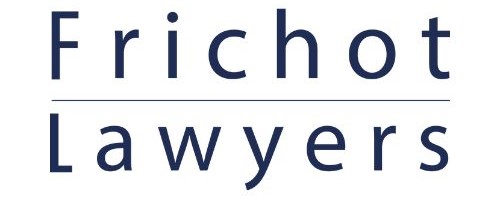Generally, a person suspected or accused of a criminal offence has the right to remain silent and not to incriminate him/herself. This means they can refuse to answer questions (except name, age, and address, or in the case of a direction under the Road Traffic Act 1974 (WA), the identity of a responsible person in respect of a motor vehicle involved in an incident), including in a police interview, or give evidence in criminal proceedings in court for the offence.
Section 72A(3) of the Emergency Management Act 2005 (WA) (EMA) requires a person to give ‘relevant information’ to an ‘authorised officer’ even if it may incriminate the person. This is to facilitate contact tracing for public health purposes during the COVID-19 pandemic. However, this information cannot be used in any criminal proceedings against the person, except criminal proceedings for an offence under section 89 of the EMA.
The ‘state of emergency’ and ‘public health state of emergency’
In response to the COVID-19 pandemic, on 15 March 2020, the Government of Western Australia declared:
a. a ‘state of emergency’ under section 56 of the EMA; and
b. a ‘public health state of emergency’ under section 167 of the Public Health Act 2016 (WA) (PHA).
Giving ‘relevant information’ to an ‘authorised officer’
Under section 72A(3) of the EMA, for the purposes of emergency management during a ‘state of emergency’, an ‘authorised officer’ may direct a person to:
a. give to the officer ‘relevant information’ about the person or any other person closely associated with the person; or
b. answer questions intended to elicit ‘relevant information’ about the person or any other person closely associated with the person.
1. Who is an ‘authorised officer’?
An ‘authorised officer’ is defined in sections 3 and 61 of the EMA to mean:
a. the State Emergency Coordinator; and
b. persons authorised by the State Emergency Coordinator.
If an identification card has been issued to an authorised officer, then the authorised
officer should (but is not required to):
a. carry the identification card while performing functions under the EMA; and
b. if it is practicable to do so, produce it before exercising a power of an authorised officer under the EMA. An authorised officer is not required to be issued an identification card.
2. What is ‘relevant information’?
‘Relevant information’ is defined in section 72(1) of the EMA and in regulation 23 of the Emergency Management Regulations 2006 (WA) to mean:
a. the personal details of a person;
b. information about the whereabouts of a person;
c. information about the state of health of a person;
d. information about any recent travel undertaken by a person;
e. information about persons with whom a person has been in close contact;
f. information about the loss suffered by a person, the assistance requested by a
person and the assistance provided to or approved for a person;
g. information about the owner or occupier of real property; and
h. information relating to a person’s finances or insurance.
The scope of the questions which must be answered is a major abrogation of the right not
to answer questions which might tend to incriminate oneself.
3. Can a person refuse to disclose ‘relevant information’ to an ‘authorised officer’ if
it will incriminate the person?
Section 72A(4) of the EMA provides that a person is not excused from complying with a direction under section 72A(3) of the EMA to:
a. give to the officer ‘relevant information’ about the person or any other person closely associated with the person; or
b. answer questions intended to elicit ‘relevant information’ about the person or any other person closely associated with the person; on the ground that doing so might tend to incriminate the person or expose the person to a criminal penalty. This means that if, for example, a person is given a direction to quarantine at a particular place for a specific period of time and they break quarantine by leaving that place during that time and are then charged with failing to comply with a direction under the EMA or PHA, they would still be required to answer questions from an ‘authorised officer’ regarding the places they went to in breach of quarantine (such information would fall within category (a) of the definition of ‘relevant information’ above). However, even though the answers would incriminate the person of the offence of failing to comply with a direction, the answers cannot be used against the person in criminal proceedings, except criminal proceedings for an offence under section 89 of the EMA.
4. Can ‘relevant information’ which a person discloses to an ‘authorised officer’ be
used in criminal proceedings?
Any information or answer given by a person in compliance with a direction under section
72A(3) of the EMA to:
a. give to the officer ‘relevant information’ about the person or any other person closely associated with the person; or
b. answer questions intended to elicit ‘relevant information’ about the person or any other person closely associated with the person;
is not admissible in evidence in any criminal proceedings against the person, except criminal proceedings for an offence under section 89 of the EMA (being the offence of giving information to an ‘authorised officer’ exercising a power under the EMA which the person knows to be false or misleading in a material particular, which is subject to a fine of $50,000.00).
It is an offence to fail to comply with directions given under the EMA in relation to self- isolation, quarantine, mask-wearing, gatherings, activities, access to places and travel.

